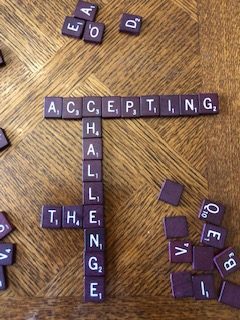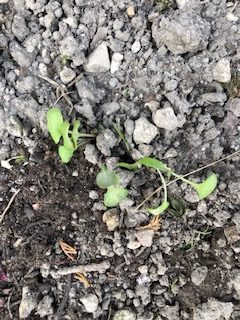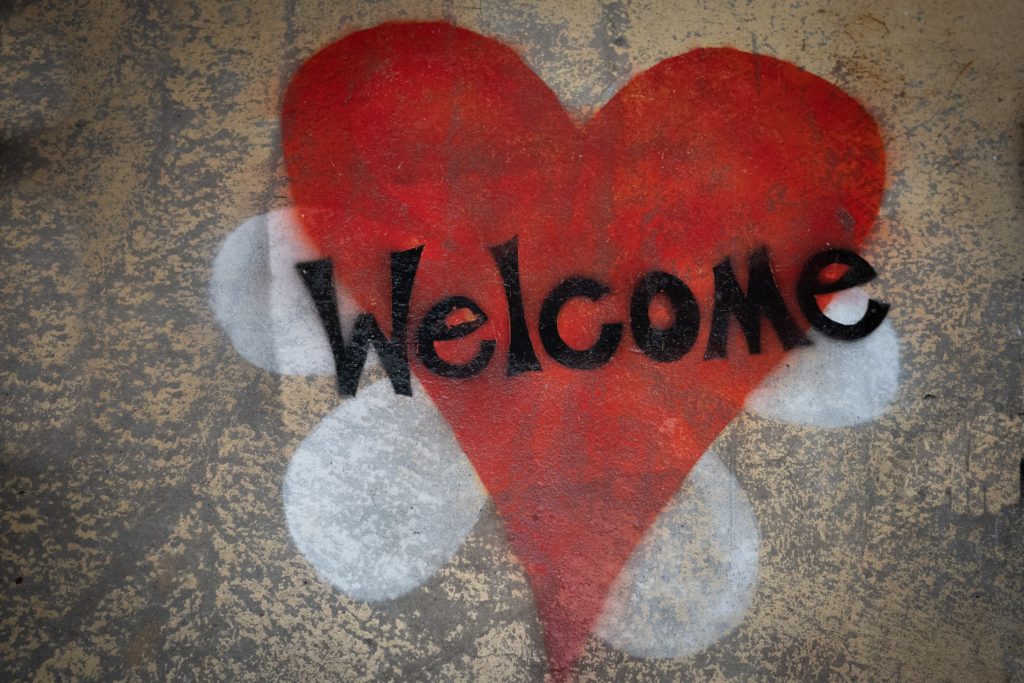This is the challenge that I have set myself and which I extend to you. What can I do to make every single day matter? How can I – in even the tiniest way – contribute to the general good rather than its opposite? While flooded with news stories of unconscionable evil, it is easy to feel that whatever we do, it will be pointless.

Image: Karen Costello-McFeat
Whenever I succumb to this notion, I remind myself that that is exactly what those with nefarious intent want. When we are all bowed down with despair and drained of energy, the less scrupulous flourish. There is a famous quote attributed to Edmund Burke that says, “The only thing necessary for the triumph of evil is for good men to do nothing.” Ironically, he never said it, but John Stuart Mill – in a slightly longer version – did.
“Let not any one pacify his conscience by the delusion that he can do no harm if he takes no part, and forms no opinion. Bad men need nothing more to compass their ends, than that good men should look on and do nothing.”
John Stuart Mill
Mill was not one to mince his words. His challenge is clear and a little daunting. Our option is to be part of the problem or part of the solution. Bystanders, in Mill’s view, might as well shuffle over the the bad men’s side.
Unsettling? Yes. Discomfiting? Definitely. But true, nonetheless.
Planting the seed
Before anyone disappears, let me suggest that we do not need to begin with the intention of ‘saving the world’. Folks have tried that in the past and it seldom works out well. The real challenge is to take steps that are in alignment with our lives and abilities. We are all capable of smiling at the delivery man; giving a pedestrian safe passage across the road when driving and in performing small acts of kindness. When we make these our practice, we will find more challenging acts much more manageable.
If we are concerned about the environment, for example, jetting off to an exotic location to talk about it is unlikely to benefit anyone; whereas, planting your own vegetables and trees; car sharing and turning down the thermostat will have measurable, positive results.

Personally, I find even the smallest of kindnesses difficult sometimes. When I am tired or in pain, I may even want to provoke misery in others. The trick is to remind ourselves that everyone is trying to keep their heads above water. What we want and they want is the same: a little understanding and compassion.
When we turn our gaze outward, rather than inward, something miraculous happens. Our pain and tiredness become minor inconveniences soothed by our concern for others. We are, I believe, designed for caring. Endless studies have shown that those working for the good of their communities are happier and live longer. In doing ‘the right thing’, we are ultimately doing the right thing for ourselves.
What to do?
Over and above the usual courtesies, it is sometimes difficult to know what is the right thing to do to improve a situation. Rushing in or throwing money at it thoughtlessly is seldom the best approach. I remember my husband telling me about his thesis on Zambia and the horrific waste of aid money there. A beautiful hotel was built in the wilds without access roads or even a tourist industry. Nature soon reclaimed it as her own. No doubt some politicians made a very good income, but those funds were not then available to educate or heal the populace.
In the Quaker tradition, we have something called discernment, which is a sort of questioning process that we go through before taking action. It may mean doing some research, talking to people or simply sitting quietly and considering the subject from all angles. Upon thinking of a way to act, we then ask ourselves if it is spirit/love led.
It is a time consuming process, but it means that we seldom take on things we are not willing to finish or react emotionally only to change our minds. When we decided to host a Ukrainian family, we took a few days to mull over the consequences. To be frank, I am both excited and terrified by the prospect, but I have no doubt that for us, it is the right thing to do.
For more on the subject of discernment, you might like to read: https://transitionquaker.blogspot.com/2021/01/discernment.html

Take courage!
Whatever endeavour we set out upon will take a certain amount of courage. A friend has just been accepted to volunteer with a local charity and starting any new enterprise has its share of trepidation. Will I be able to perform my duties well? Will my efforts be worthwhile?
Naturally, none of us know the outcomes of our decisions, but we still have to act. Not everything will work out. Those we expect to show gratitude may show disdain; those tasks we perform, hoping to make a difference, may go nowhere. And if we are foolish enough to think that working for the general good will make us popular, it won’t. Change is always unsettling and asking others to change can, to some, feel like a threat. Even the most gentle promptings are sometimes take this way. Years of campaigning for Greenpeace showed me that.
Nobody said that doing anything worthwhile was easy. This is why the post is called, ‘Accepting the Challenge.’ Challenges are difficult and risky, with only uncertain outcomes. But they are equally exhilarating, life affirming and life-changing. So, the question is, do we wish to live with certainty and stagnation or uncertainty and growth?
Living adventurously
My favourite passage from the Quaker book of Faith and Practice is this –
Live adventurously. When choices arise, do you take the way that offers the fullest opportunity for the use of your gifts in the service of God and the community? Let your life speak.
(Quaker Faith and Practice, Advice and Queries 1.02 27)
It is a bold and powerful statement. We are all eloquent when it comes to words, now it is time for our lives to express us.

Faith without works is dead
Absolutely! And you and Edwin have spent a lifetime in good works xx
Definitely, what a magnificent website and educative posts, I surely will bookmark your site.Best Regards!
Thank you so much. I hope you will subscribe x